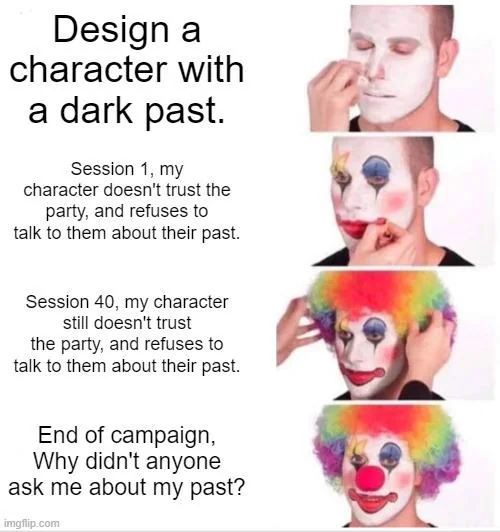I'll never forget one of my first campaigns, where a few sessions in, the one "edgy" character in our crew of demented murderhobos decided that he didn't want to go in a cave that the rest of the party were going in. Nothing could move him on this.
Every 15 minutes or so through a multi-hour session while the rest of us explored the cave and fought beasties, the DM would ask him what he wanted to do, as a kindness that turned into a running joke by the end. His character was determined to use his abysmal crafting skills to try and make caltrops from stones outside the cave. I think that when the average rolls were calculated out over the time it took, he crafted something like three poor quality caltrops.
The player insisted that he was fine with all of it, seemed to have fun just hanging out, and it did technically fit his character. Still, it really cemented the importance of being flexible with your RP to not kill game flow.
A session or two later the DM gave each of us a "joke" magic item of questionable utility. Edgy got a pouch of infinite stone caltrops. The DM then learned a hard lesson about the cheese potential of "joke" magic items.
